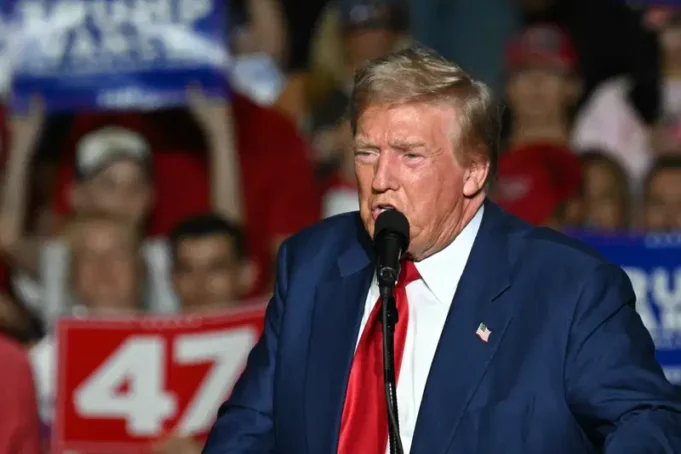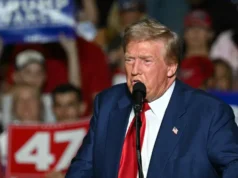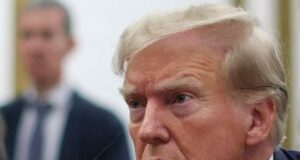Donald Trump, the President-elect, announced plans on Monday to impose heavy tariffs on goods coming from Mexico and Canada, signaling his intention to punish these countries for what he described as a growing crisis of illegal immigration and drug trafficking.
Trump posted on his social media platform, Truth Social, declaring that on his first day in office, he would sign an executive order imposing a 25% tariff on all imports from Mexico and Canada.
He claimed that both countries were allowing drugs, particularly fentanyl, and illegal immigrants to flood into the United States, exacerbating crime levels in the country.
“This Tariff will stay in effect until Drugs, particularly Fentanyl, and all Illegal Aliens stop this Invasion of our Country !” Trump wrote, adding that both Mexico and Canada had the means to address the issue but had failed to do so.
He further warned that if they did not act, they would face serious consequences.
In a separate post, Trump also stated that he would add a 10% tariff on Chinese imports, citing his frustrations with China’s failure to address the flow of drugs, particularly fentanyl, into the U.S.
Despite earlier talks with Chinese representatives, Trump claimed that China had not followed through on its promise to punish drug traffickers severely.
Throughout his campaign, Trump had vowed to crack down on illegal migration from the southern border and to reduce the flow of illicit drugs.
He also suggested declaring a national emergency and deploying military forces to deport immigrants living unlawfully in the U.S.
Although Trump’s rhetoric about rising crime rates was stark, FBI data from September revealed that violent crime in the U.S. had decreased for the third consecutive year, including reductions in murder, rape, and assault.
Economists, however, have raised concerns about the potential economic consequences of Trump’s tariff strategy.
They warn that such tariffs could lead to higher prices for consumers, increased inflation, and higher interest rates.
Tariffs are essentially taxes imposed on foreign goods entering the U.S., and experts caution that they could harm the economy by disrupting trade relations and raising the cost of goods for American consumers.

















